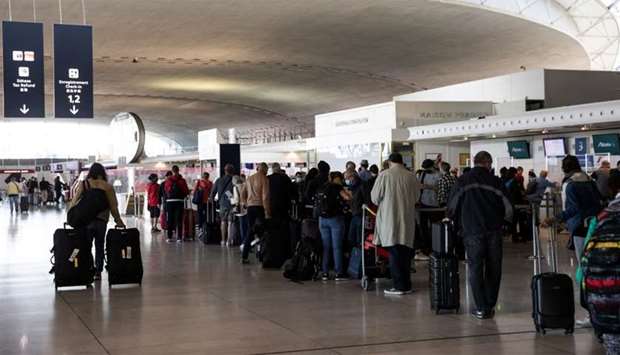Beyond the Tarmac
Economies around the globe have been brought to their knees by Covid-19, and the aviation industry has been particularly hard-hit.
Covid-19 lockdowns led to an almost complete standstill in airline travel worldwide. Many airlines grounded most of their flights, globally.
But most border restrictions within Europe have already been lifted and people are beginning to travel, gradually. This may lead to a greater demand in air travel in the continent over the medium term.
Elsewhere, countries have slowly started easing restrictions, allowing mostly citizens and legal residents to travel.
And they are also pinning their hopes on creation of a “travel bubble” that seeks to help reconnect countries that have shown a good level of success in containing the novel coronavirus pandemic, domestically.
With the pandemic throwing both international and domestic travel and trade out of gear since early 2020, such ‘travel bubbles’ are now being recommended to put global economy back on track.
Obviously, the re-opening of travel has brought to the spotlight Covid-19 testing, as passengers arriving “ready-to-fly” reduce the risk of contagion in the airport and enables early re-accommodation for any traveller who tests positive.
Testing can certainly play a role as an extra layer of protection for countries, where risk has been assessed at a higher level.
In this context, the International Civil Aviation Organisation (ICAO) has issued the ‘Takeoff’ guidance, which is the global guideline for governments to follow “in reconnecting their people and economies by air”.
It outlines layers of measures to mitigate the risk of Covid-19 transmission during air travel and the risk of importation of novel coronavirus via air travel.
Technology for rapid point-of-care Polymerised Chain Reaction (PCR) testing could be a useful layer of protection for travellers from countries considered as higher risk, potentially removing the need for measures such as institutional quarantine, which is seen as a major barrier to travel and the recovery of demand.
“If testing is required as part of the travel process, it is recommended at departure. Governments would need to mutually recognise test results and data transmission should take place directly between passengers and governments in a similar manner as e-visa clearances are currently handled,” according to the International Air Transport Association.
For instance, some countries like Iceland, have implemented ‘testing on arrival’ as an alternative to quarantine.
Alexandre de Juniac, IATA director general and CEO says, “The point to emphasise here is that testing before departure would be much more efficient. It would keep people who test positive completely out of the travel system. The challenge, however, is for governments to work together so that testing data from the departure location is accepted by the arrival state.”
Further, testing will need to cope with the growing volumes of travellers. That means delivering accurate results fast and at the scale of airport operations. Progress towards these goals looks encouraging.
“Another point that needs to be addressed is costs,” he stressed. Testing should not become an economic barrier to travel. If governments require testing, they must bear the cost. That was agreed by governments in the WHO’s International Health Regulations, he said.
Passengers are clearly concerned about Covid-19 when travelling, if a recent IATA survey is anything to go by.
Some 58% of those surveyed said that they have avoided air travel, with 33% suggesting that they will avoid travel in future as a continued measure to reduce the risk of catching Covid-19.
When asked to rank the top three measures that would make them feel safer, 37% cited Covid-19 screening at departure airports, 34% agreed with the mandatory wearing of face coverings, and 33% noted social distancing measures on aircraft.
Interestingly, passengers themselves displayed a willingness to play a role in keeping flying safe by undergoing temperature checks (43%), wearing a mask during travel (42%), checking-in online to minimise interactions at the airport (40%), taking a Covid-19 test prior to travel (39%) and sanitising their seating area (38%).
The survey also pointed to some key issues in restoring confidence where the industry will need to communicate the facts more effectively.
For example, though 57% of travellers believed that onboard air quality is dangerous, 55% understood that it was as clean as the air in a hospital operating theatre.
Industry experts affirm that High Efficiency Particulate Air (HEPA) filters fitted in aircraft capture well over 99.999% of germs, including the coronavirus. Moreover, when passengers are sitting in close proximity on board, the cabin air flow is from “ceiling to floor”.
This, they say, limits the potential spread of viruses or germs backwards or forwards in the cabin.
“It is no secret that passengers have concerns about the risk of transmission onboard,” said de Juniac.
“They should be reassured by the many built-in anti-virus features of the air flow system and forward-facing seating arrangements. On top of this, screening before flight and facial coverings are among the extra layers of protection that are being implemented by industry and governments on the advice of ICAO and the World Health Organisation. No environment is risk-free, but few environments are as controlled as the aircraft cabin. And we need to make sure that travelers understand that,” de Juniac noted.
The global deployment of practical measures introduced by governments and the industry (under ICAO’s ‘Take-off guidance) may address travellers’ concerns about Covid-19 and restore confidence in air travel to a large extent.
Pratap John is Business Editor at Gulf Times. Twitter handle: @PratapJohn


